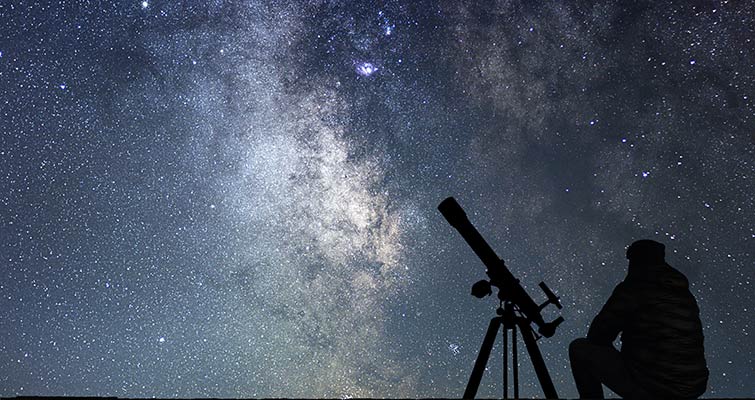Astronomy for Beginners
Have you ever gazed up at the night sky and wanted to know more? Then this is the course for you! Learn how to find your way about the sky and identify planets and other interesting objects. Why do the constellations change from season to season? Why does the Moon have phases and why do we have seasons on Earth?
We take a look at the latest on our Solar System, from the clouds of Venus, moons of Jupiter to the surface of Pluto. We also take a look at the next step of owning your telescope – what features do you need and which telescope is the right one for you? No prior astronomy knowledge is required for this course.

Course Outline:
- What’s in the night sky?
- How the sky works: day and night, seasons and moon phases
- The Solar System
- Telescopes – which one is right for you?
Learning Outcomes:
- Be able to recognise and differentiate between stars and planets
- Find the main constellations in the night sky – e.g. Southern Cross
- Understand how a telescope works and be able to choose a suitable telescope
- Understand the basics of day and night, the seasons and phases of the moon
What to Bring:
- paper and pen
About the Tutor:
'Melissa has a BSc. (Hons) in Physics and while completing this she worked as a night guide/lecturer at Sydney Observatory where she has worked full-time as an Astronomy Educator and is now the Site Programs Coordinator. Melissa also works as a Casual Instructor for Swinburne University’s Online Astronomy Course. She has worked as an Assistant Editor on both Lab News and Today’s Life Sciences Magazines. Melissa was also part of the ‘Science in the Pub’ team that won an Australian Eureka Award for Science Promotion in 2000.
Melissa has been an active member of the Sutherland Astronomical Society for over 20 years with her main interest in astroimaging. This interest led her to initiate and coordinate the astroimaging group for ten years. Melissa is also a member of the Astronomical Society of Australia and the Astronomical Society of NSW. Melissa’s main interests have always been comets and eclipses and when time allows, she likes nothing better than spending time imaging the wonders of a clear, dark night sky with a few friends.'
Other Information:
- To ensure resources are ready for you at the start of your course, we ask you ideally enrol at least one week before the course commences.
- All courses need a minimum number of students to run ("we try our hardest to get those") . If your course does not have enough students it will be cancelled before the commencement and you will be informed.
<p><p>Have you ever gazed up at the night sky and wanted to know more? Then this is the course for you! Learn how to find your way about the sky and identify planets and other interesting objects. Why
...If there isn't a class to suit you, please the waiting list.

